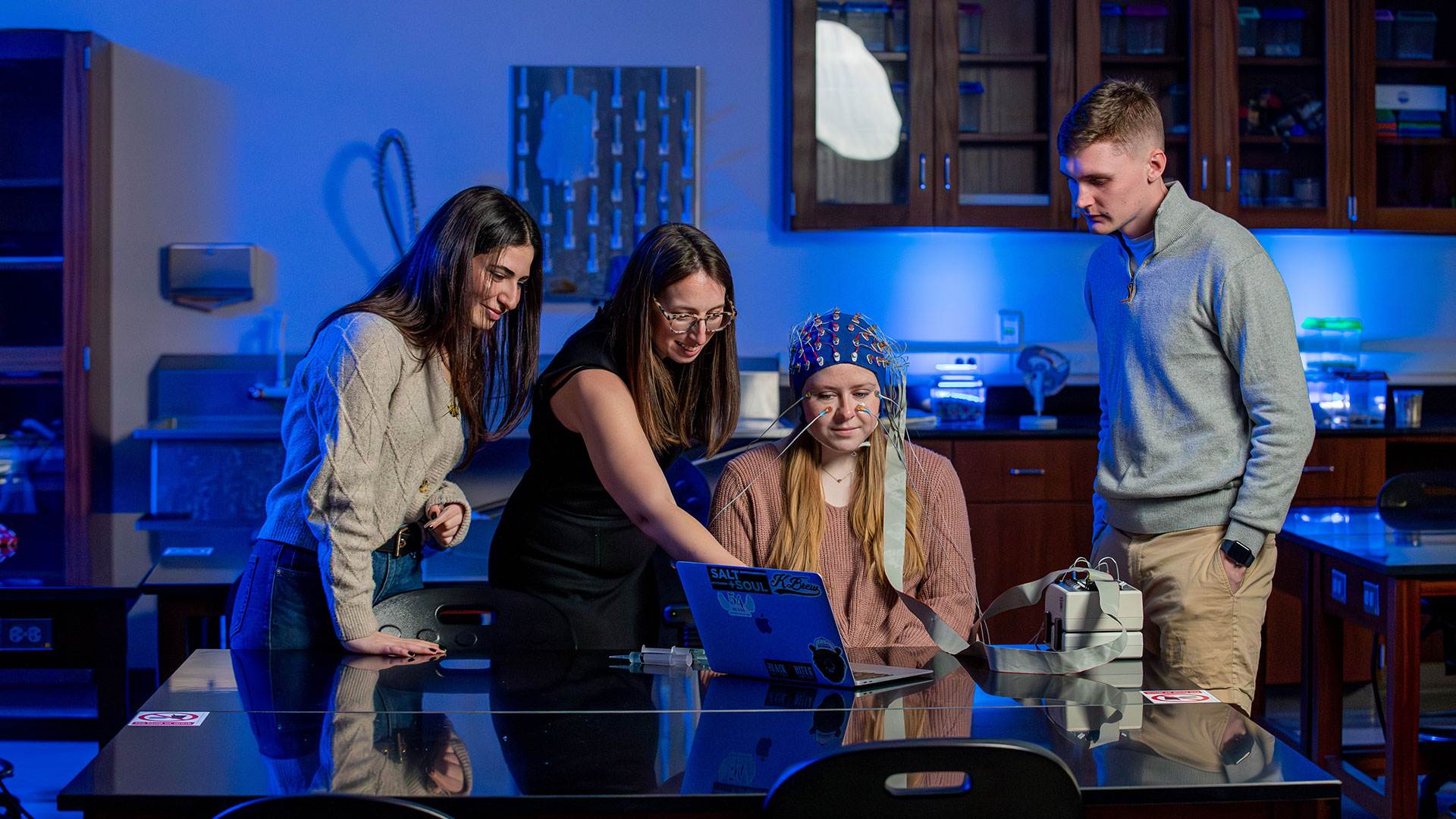Neuroscience
major

Program at a Glance
Degree(s)
Bachelor of Science
College(s)/School(s)
College of Natural and Behavioral SciencesIn our Neuroscience program, you will gain a comprehensive understanding of the brain, spinal cord, and sensory systems. Engage in interdisciplinary coursework, labs, and real-world learning to understand and discover the mysteries of thought, emotion, behavior, physiology, and disease. Our rigorous curriculum combines biology, chemistry, physics, and psychology. Unleash your curiosity, expand your knowledge, and make meaningful contributions to the study of the mind.
Program Requirements
Students majoring in Neuroscience who complete all requirements earn the degree of BS, Neuroscience.
- NEUR 201 - Introduction to Neuroscience
- NEUR 301W/301L - Research Methods in Neuroscience and Laboratory
- NEUR 305 - Neurobiology
- BIOL 211/211L - Principles of Biology I and Laboratory
- CHEM 121/121L - General Chemistry I and Laboratory
- CHEM 122/122L - General Chemistry II and Laboratory/li>
- CHEM 321/321L - Organic Chemistry I and Laboratory
- PHYS 151/151L - Intermediate Physics I and Laboratory
- PHYS 152/152L - Intermediate Physics II and Laboratory
- MATH 125 and 130 or higher (MATH 140 or 148 is strongly recommended)
- IDST 490 - Interdisciplinary Studies Capstone Project
- Select two (minimum):
- NEUR 360 - Neuroendocrinology
- NEUR 395 - Special Topics in Neuroscience
- NEUR 410 - Neurobiology of Memory
- NEUR 420 - Neuroanatomy
- NEUR 430 - Neurobiology of Addiction
- NEUR 495 - Advanced Topics in Neuroscience
- NEUR 499 - Independent Study in Neuroscience
- Select one:
- BIOL 307/307L - Cell Biology and Laboratory
- BIOL 313 - Genetics
- IOL 314/314L - Human Anatomy and Physiology I and Laboratory
- BIOL 411 - Immunology
- BCHM 414/414L - Biochemistry I and Laboratory
- CHEM 322/322L - Organic Chemistry II and Laboratory
- CPSC 471 - Applied Artifi cial Intelligence
- Select one:
- PSYC 305 - Psychology of Learning
- PSYC 316 - Cognitive Psychology
- PSYC 406/406L - Psychology of Sensation and Perception and Laboratory
- PSYC 408/408L - Psychopharmacology and Laboratory
- PSYC 415/415L - Comparative Psychology and Laboratory
- PSYC 428/428L - Cognitive Development and Laboratory
Career Options
- Neuroscientist
- Clinical Neurologist
- Neuropsychologist
- Neuropharmacologist
- Research Scientist